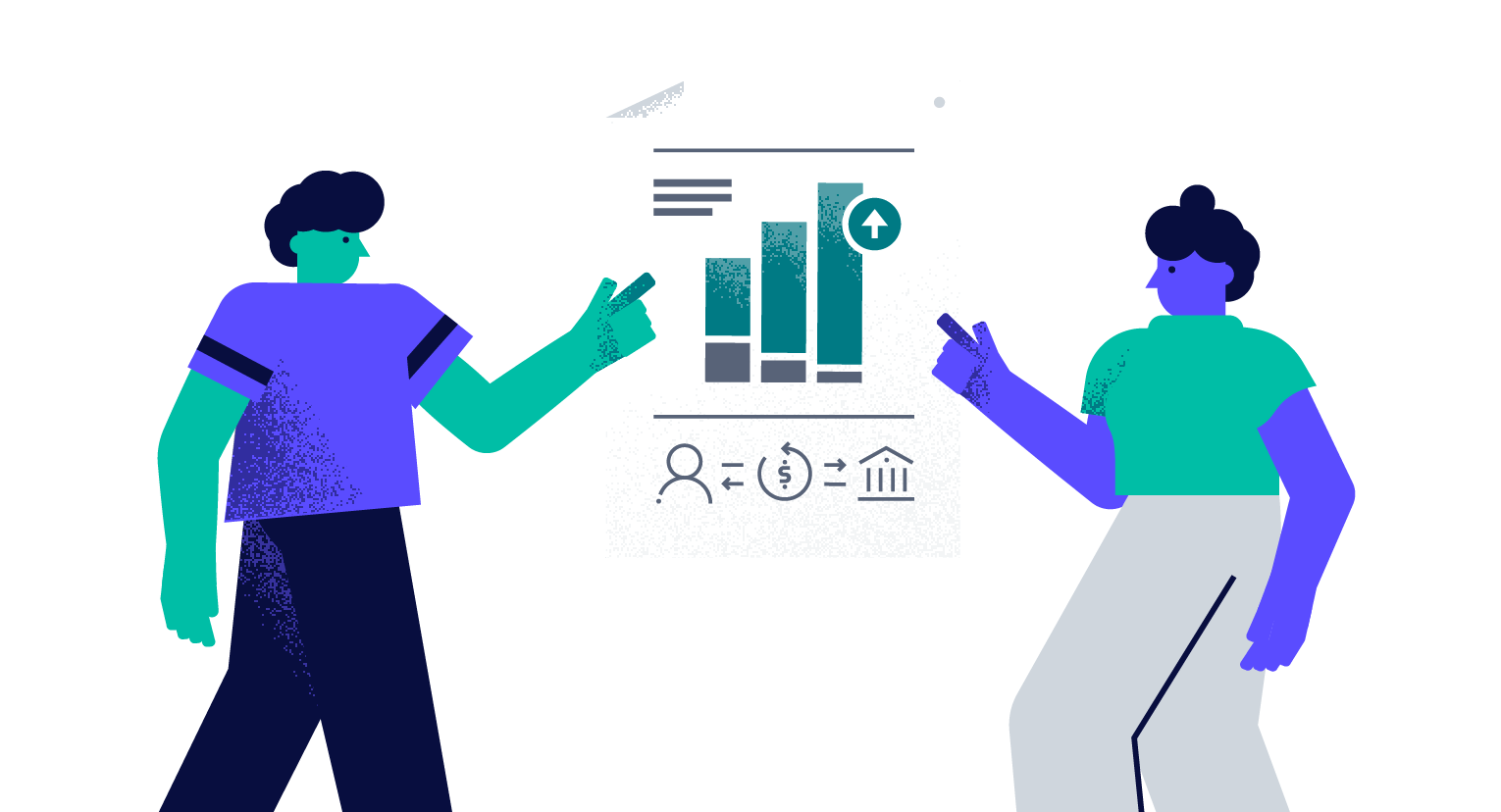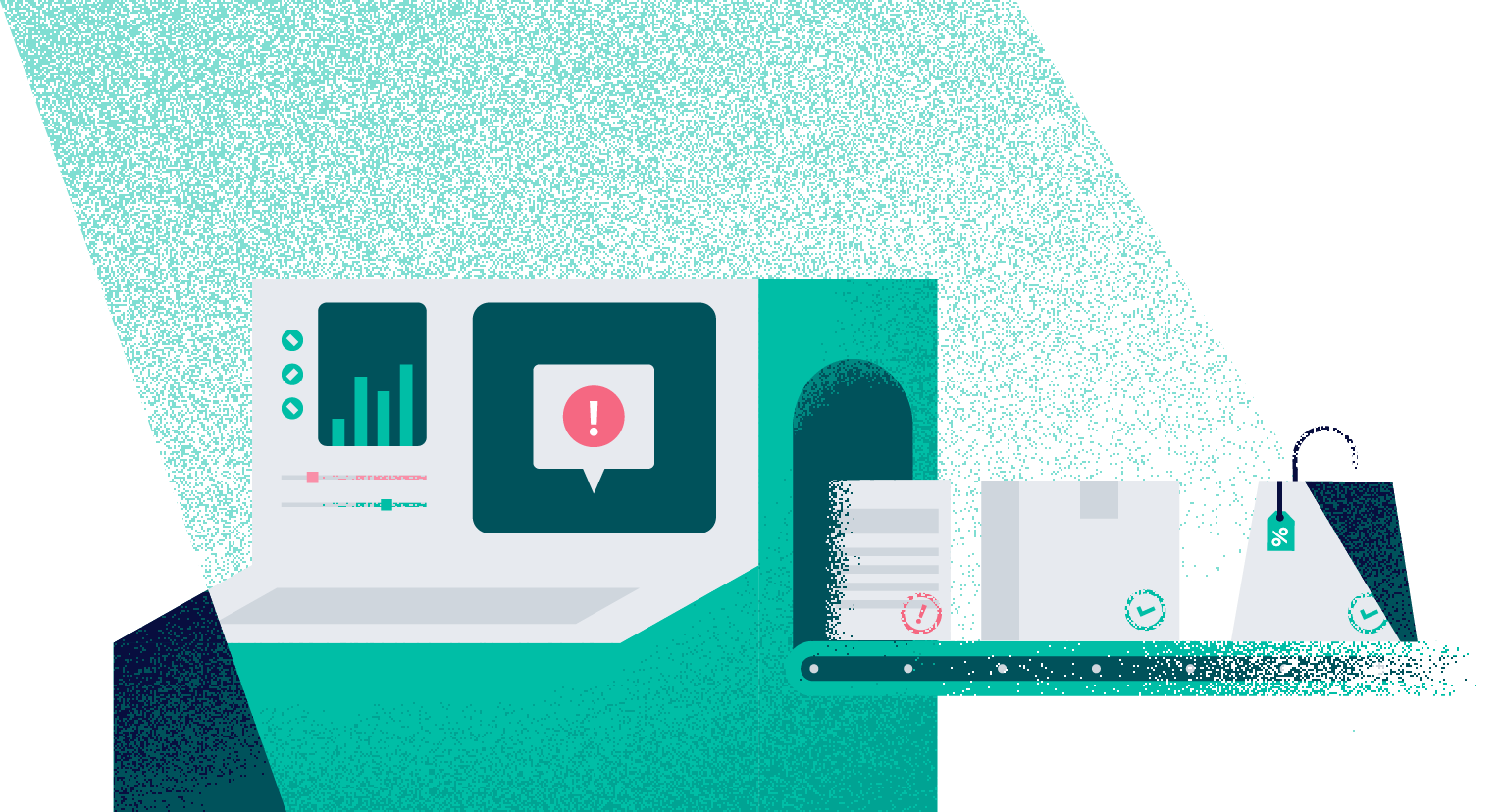Fraud Is Unpredictable, Profitability Shouldn’t Be: Why the C-Suite Needs an Accountable Fraud Management Partner

Accountability is the glue that holds our operations together. It’s about taking responsibility for maintaining the integrity of our business environment. Just as we’re responsible for the well-being of our families and communities, as executive leaders, we’re accountable for our teams’ success and the outcomes they achieve.
However, confusion often arises between accountability and consequences. Consider hiring someone to park your car – if they damage it and you decide not to hire them again, that’s a consequence. But you’re still left with a damaged car that requires costly repairs.
On the other hand, hiring an accountable driver means they’re financially responsible for any damages. This setup minimizes risk, and the driver is motivated to take excellent care of your car.
In the business world, your ecommerce store is like that cherished car – it’s a crucial asset driving growth and profitability. Executives in ecommerce are familiar with the frequency of fraud, which can be more common than a fender bender, and as fraud is constantly evolving, a coordinated attack can severely impact your company’s finances, similar to a major car crash.
After the “crash,” you can fire a non-accountable fraud vendor that failed to detect and mitigate the fraud attack, but your CFO will still have to answer to investors for the material impact of unforecasted fraud losses that hurt your company’s profitability.
However, it doesn’t have to be this way. Just as finance executives are held accountable for predictable top- and bottom-line results, they should expect the same level of accountability and predictability from their fraud management partners.
Accountability creates predictability for CFOs managing investors’ expectations
As a CFO, you need the ability to navigate uncertainty, predict revenue and expenses, and manage complex risk scenarios. Success means reporting predictable revenue growth and profitability forecasts to your investors. The nightmare scenario is a material event that causes you to miss a forecast. New fraud rings strike merchants with account takeovers or new schemes to circumvent detection that can hurt that quarter’s profitability.
This fear of emerging threats and undetected fraudulent transactions leads many ecommerce merchants to over-decline legitimate orders. One recent study cited that ecommerce merchants reject an estimated 16% of all sales unnecessarily, costing businesses ~$11B in sales annually.
As new fraud threats emerge, accountable fraud partners have every incentive to stay ahead of the curve, using AI and machine learning to parse incoming fraud data and provide much-needed stability and predictability to finance executives.
TicketNetwork faced record levels of fraud in post-pandemic 2022 as fans surged back to live events and paid top-dollar for tickets. Business was good, but TicketNetwork’s chargebacks soared. Adding to uncertainty for the CFO in financial reporting: the lag time between when an order comes in, chargeback submission, and processing. “Ecommerce fraud is a bottom-line problem for companies, but it’s also a metrics problem for CFOs,” said one observer.
An accountable fraud management model offers vital revenue predictability in the face of global uncertainty. The CFO knows exactly what the minimum approval rate will be and precisely how much to budget for fraud, because the liability of paying chargebacks belongs to the accountable fraud partner. In this way, the CFO can predict the exact revenue lift their organization will receive from the partnership.
“The most important thing from my perspective when I’m reviewing a potential strategic initiative is ROI,” says Christopher Hummer, CFO of TicketNetwork. “So it’s extremely important to understand what the impact will be to the organization and the bottom line.”
Accountable fraud partners provide a clear and calculable ROI, making them a natural fit for CFOs looking to minimize uncertainty and maximize predictability.
What separates an accountable fraud partner from a non-accountable fraud vendor?
At Riskified, we hear a version of this narrative time and time again from our new merchant customers:
“We did a shallow integration and were given a relatively ‘cheap’ risk score, but with no guarantee of the business outcomes we wanted. The performance results were poor–especially during events like flash sales, or expanding into new geographies. It didn’t improve the following year so we switched.”
So, what does it mean to be an accountable fraud partner? An accountable fraud management partner only benefits if their client sees successful business outcomes. The partner should be financially motivated to keep chargebacks (costs) low and approval rates (revenue) high. There are two key ways to ensure this dynamic:
- A chargeback guarantee that shift the costs of fraud chargebacks from the merchant to the fraud partner
- A performance-based fee structure that rewards the fraud partner for approved transactions, not just for analysis
Similar to a lawyer working on a contingency basis, the accountable platform provider only profits when the client wins. Even better than a lawyer working on contingency, accountable fraud partners cover the “settlement fees” if the client loses, or in this case, a fraudulent transaction slips through the cracks. This setup compels them to actively enhance revenues and profitability. Particularly when utilizing advanced AI to detect genuine customers and prevent fraudulent ones, this partner is motivated to invest significantly in research and development, especially in fraud and identity data science.
On the other hand, the non-accountable fraud vendor lacks significant financial skin in the game. They don’t take responsibility for their errors (e.g., they don’t accept chargeback liability), and they receive payment for every transaction they make a decision on, regardless of the financial outcome for the merchant.
Like an attorney on retainer billing hourly, non-accountable vendors are paid irrespective of the business results they achieve. This misalignment of incentives with the merchant leads to unfavorable consequences. The merchant bears the consequences, whether through unnecessarily rejecting valid orders or paying for chargebacks following a major fraud attack. Meanwhile, the vendor gets compensated either way. As non-accountable vendors don’t genuinely share the merchant’s risks, this diminishes their motivation to invest in ongoing improvements or innovation.
In essence, choosing an accountable fraud partner ensures a shared commitment to success, while opting for a non-accountable vendor typically results in misaligned incentives and less dedication from the vendor to performance and innovation.
Chargeback guarantees and approval rates: The two key components of an accountable model
Chargeback guarantees are the beating heart of the accountable fraud management partnership. In an accountable model, the fraud and risk partner takes responsibility for the cost of fraudulent transactions they approve: the chargeback guarantee. This unique approach provides maximum protection against the ever-evolving threat of payment fraud.
The incentive to absorb these costs drives accountable partners to make highly accurate decisions, utilizing real-time machine learning to effectively differentiate between legitimate customers and malicious actors. Maintaining low chargeback rates also keeps merchants clear of network chargeback programs.
Conversely, if chargebacks accumulate, authorization rates from impacted issuers can begin to decline. If left unchecked, the merchant could find themselves in an excessive chargeback program run by the card network, where they will incur additional fines, fees, penalties, and the loss of processing privileges.
In the accountable model, merchants only compensate the partner for approved transactions, fostering a clear incentive to maximize approvals. Chargeback guarantees not only empower merchants to accept more orders but also ensure revenue predictability. This commitment to excellence results in accountable partners consistently surpassing service level agreements (SLAs), a level of performance non-accountable vendors lack motivation to achieve.
A non-accountable model, on the other hand, takes an excessively cautious approach, preferring to decline more potentially good orders in an attempt to keep fraud rates low. Non-accountable vendors that decline too many good orders cause merchants to miss revenue opportunities and strain customer relationships. Achieving the right balance between minimizing chargebacks and optimizing approval rates becomes a critical challenge for online merchants, a balance best achieved by partnering with an accountable vendor.
As Dajana Gajic-Fisic, Former Head of Ecommerce Risk Management at Finish Line puts it,
“Anyone can say they’re managing fraud by over-declining, but at what cost? You will probably decline most of the fraudulent orders, and your chargeback rate will be very low, but you’re losing good customers and revenue. Finding the right balance is critical.”
Online merchants that take card payments need to optimize between chargebacks and approval rates based on their individual business needs and risk thresholds. Only an accountable vendor can meaningfully strike that balance, with the combination of guaranteed approval rates and a chargeback guarantee.
An accountable fraud partner allows your team to re-focus on ecommerce growth
Most ecommerce executives wouldn’t say they operate a “fraud prevention business.” They are in the ecommerce business. Building lasting brand loyalty and selling great products online is their core competency, and should be the focus of investment.
An outside partner that is liable for chargebacks and accountable for merchant performance acts as an extension of your in-house team. With an accountable, AI-powered platform in place, your team’s talent can focus on other value-driving initiatives instead of manually reviewing orders, manually disputing chargebacks, or manually maintaining hundreds of decisioning rules.
TicketNetwork previously used a rules-based system for fraud detection. While the system did hit its approval rate targets, it required constant, labor-intensive effort from the TicketNetwork team to manually tweak rules and identify each fraudulent and legitimate order. When fraud patterns evolved, the toil involved in manually tuning rules, and performing manual reviews increased.
When TicketNetwork made the move to Riskified, our machine learning models displaced the need to manually manage rules. TicketNetwork was able to redeploy talent toward “friendly” chargebacks, a pervasive problem for ticket sellers. With their talent freed-up to focus on this new challenge, they now recoups about 60% of these “friendly” chargebacks through a streamlined representment process.
Prioritize revenue-driving innovation
With an accountable fraud management partner, you can redeploy specialized talent and invest innovation budget to areas of core competency without eroding fraud performance. For example, a merchant’s in-house data science and ecommerce teams can spend more time serving core revenue-generating areas of their business such as training models on customer engagement, segmentation, and conversion.
Accountable partners promote flexibility and seasonal scalability
An accountable fraud platform also provides instant scalability as order volumes and fraud threats fluctuate, so the operations team isn’t faced with quickly hiring temporary and inexperienced workers to review a surge in orders or, worse, leave customers waiting.
During the pandemic, for example, FlightHub experienced an influx of bookings that required manual review, overwhelming its fraud team. Customers waited up to 30 minutes to get a decision, and customer service was inundated with customers seeking order confirmations.
As Nick Hart, Chief Corporate Development Officer of FlightHub explains,
“The travel landscape changed drastically and our internal systems weren’t prepared to handle these new behavioral patterns.”
Through Riskified’s AI-powered automation, FlightHub raised its approval rate by 30% and decreased manual reviews by 80%. The partnership freed FlightHub employees to focus on core areas of the business with an added cash flow boost from more approved transactions.
Not all machine learning is equal
Machine Learning is like playing the piano: it’s not hard to do per se, but it requires an enormous investment in time and repetition to do really well. For machine learning algorithms to be effective, you have to immediately see you got something wrong (e.g. a guaranteed approval that resulted in a fraudulent chargeback) and quickly retrain a model to learn from that mistake. Speed is of the essence in the fast-evolving world of fraud. A non-accountable vendor doesn’t have that quick-reaction feedback loop and model retraining. As a result, their ML models do not learn and adapt as quickly as necessary to stop major fraud attacks.
The strength and swiftness of the feedback loop and model adjustment is a function of investment. A fraud partner who is accountable to performance has the incentive to minimize reaction time and retraining cadence. However, for a non-accountable vendor, investing in this precision is actually a poor business decision. This means the performance of a non-accountable vendor will erode over time, or they will be slow to react to fraud rings that hurt your profitability.
The hidden cost of non-accountable fraud solutions
While non-accountable platforms might seem cost-effective in the short term, their lack of chargeback guarantees or approval rate agreements conceals the hidden costs they impose over time. Businesses may suffer not only from lost revenue due to unwarranted declines but also from chargeback fees, customer attrition, and diminished investor confidence due to unforeseen financial losses resulting from fraud attacks.
The peace of mind provided by an accountable fraud and risk intelligence partner far outweighs the temporary cost savings offered by non-accountable solutions.
Nothing speaks the truth like proven performance
Riskified has proven this to be true time and time again in head-to-head pilots against other fraud vendors. We believe, for the many reasons shared above, that as an accountable fraud partner, we will outperform a non-accountable vendor every time allowing the merchant to achieve a higher ROI through higher revenue, better predictability, and higher profitability. What’s more, the merchant’s executive team can expect this sustained level of performance even as fraud evolves.
Speak with one of many merchants who’ve made the switch to Riskified, including many publicly-traded companies who enjoy the benefits of our accountable partnership.
Or, we’d be happy to set up a head-to-head pilot against your current fraud vendor that proves we can deliver higher revenue, better predictability, and higher profitability to your business.





